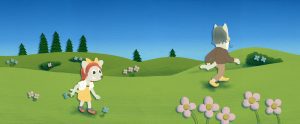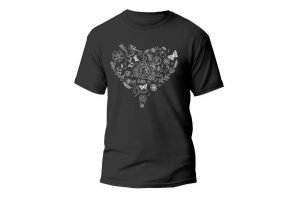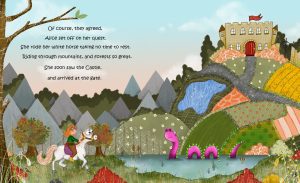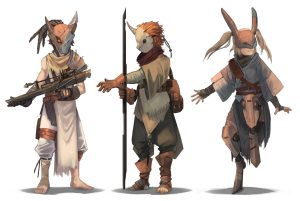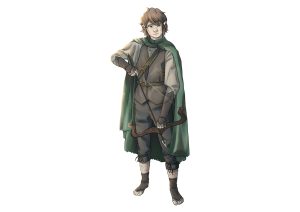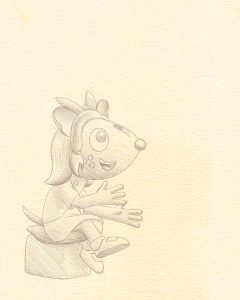Our modules are designed to build and extend your creative skillsets and knowledge of illustration and concept art for the creative industry fields, such as: film, television, animation, video games, children’s picture books, publishing, editorial, design and advertising.
During your study with us you’ll study a number of modules that total 120 credits per year.
This course includes the following core modules that all students complete:
Level 4 | Year 1
Drawing Fundamentals – 20 credits
Digital Illustration Fundamentals – 20 credits
History of Art & Design – 20 credits
Drawing & Concept Art – 20 credits
Digital Illustration & Design – 20 credits
History of Illustration: Theory & Practice – 20 credits
Level 5 | Year 2
Industry Practice Report – 20 credits
Industry Practice Project – 20 credits
Self-Promotion & Industry Contacts – 20 credits
Commercial Project – 20 credits
Specialist Industry Project – 40 credits
Level 6 | Year 3
Independent Research Project – 40 credits
Major Project Visual Development – 20 credits
Major Project Realisation – 40 credits
Portfolio Development & Promotion – 20 credits
Your personal art style and voice will evolve as you progress through each level of the course.
Occasional changes to modules and course content may take place. Students will be notified when applicable.
The primary way of delivering this programme is on campus. Students will receive equivalent to 15 hours of teaching per week, within a thirty-week academic year. Additional one-to-one meetings with tutors will provide further support and allows a perfect opportunity to review and reflect.
Teaching consists of lectures (L), seminars (S), workshops (W), and tutorials (T) – core modes of teaching which inherently facilitate learning. These modes are used interchangeably and are often combined to suit a particular activity. Below is a breakdown of teaching and learning methods utilised throughout our programme:
Studio-Based Activity:
L/S/W: Although not directly a teaching and learning method, specialist studios are essential learning environments; affording access to equipment and materials that support Illustration & Concept processes. In developing practical and technical skills, and a sense of creative exploration in learners, the studio aims to provide a collaborative environment, encouraging peer learning and a sense of a shared experience. Inductions take place to both traditional and digital aspects of the studios, including the discussion and demonstration of health and safety practices which students must always adhere to. Studio-based activity helps to inform real-world practice in a simulated setting.
Project Introduction and Briefing Session:
L: Creative briefs and projects are an essential component for all illustration and concept art creative modules. They are always expressed in a written format (the brief) and are introduced in the classroom by the tutor. The brief requires students to address the module theme through research, critical analysis, and creative development. Project briefs are devised to promote variety and encourage individual responses.
Topical Discussions and Demonstrations:
L/S/W: Topical discussions and demonstrations form the core teaching and learning method for all modules. These sessions, led by the tutor, are designed to introduce and explore key subject material. Through guided discussions, students are encouraged to actively participate, critically analyse, and contextualise the topics being covered. Demonstrations will further reinforce concepts by providing practical, real-world examples that enhance understanding and application of the subject matter.
One-to-One Practical Supervision:
W/T: Tutors will initiate student reviews to discuss project progression, project management, and self-reflective practice. Tutors will act in an advisory capacity but will also be challenging as well as supportive of these aspects.
One-to-One Interactive Mentoring:
W/T: A common practice in creative mentorship is adding to or adjusting the learner’s artwork, helping them to grasp a concept, principle, or perfect a technique via direct intervention. In the educational setting, this can be referred to terms such as scaffolding, guided practice, and collaborative editing. Regardless of the term used, the outcome is the same, providing the learner with practical assistance to support learning. Interactive mentoring often follows one-to-one practical supervision.
Critiques, Presentations, and Peer Feedback:
S/T: Displaying creative work offers a forum for tutor-peer feedback, discussion, and ideas exchange. Critiques will be undertaken regularly during each stage of the creative project. Students are required to present their work to their tutor and/or peers to explain their thinking and reasons that shape work development. Students are required to contribute actively during critiques through discussion, questioning, debate, and feedback. Critiques can be a useful in support of the formative assessment strategy as peers (as well as tutors) can offer constructive and insightful suggestions.
Tutorial Opportunities / One-to-One Tutor Feedback:
T: Individual and group tutorials provide students with academic guidance to help them achieve course competencies and fulfil their own personal goals. The tutorial is also a forum in which students evaluate their progress and attainment with tutors, and plan ways in which they will subsequently develop their learning. Tutorials are carried out at set points within each module and provide opportunities for students to discuss ideas, work progress and personal performance. Written tutorials records will made available to students. It is expected that students transcribe any verbal tutorials (tutor feedback/comments) into their preferred form of notetaking.
Independent Learning:
At undergraduate level, an increasing emphasis is placed on independent learning when progressing through the programme.
Coursework Submission and Assessment:
Throughout the course, there are a variety of assessment methods to assess creative, academic, and professional skills. These include:
- Creative Journals (sketchbooks with combined research and drawing)
- Project Design Books (project development & reflective evaluations)
- Traditional portfolio of work
- Digital Portfolios of Work
- Presentations (oral and visual)
- Reports and Essays
- End of Year Shows
- Graduate Exhibition
80 UCAS Tariff Points – Level 3 qualifications, these may include: A Level or BTEC National Diploma (PPP) or a Foundation Diploma, in a relevant subject area · Access to HE Diploma in an art related programme with at least 45 credits at Level 3 Recognition of Prior Certificated Learning (RPCL) Recognition of Prior Experience (RPEL).
We welcome applications from people of any age who might not meet the standard entry criteria, but we would expect to see evidence of continuing academic and/or professional development and a capacity to pursue the course successfully. As part of the application process, a traditional or digital portfolio of art and design-related work must be presented that demonstrates your creative ability and suitability for the course. You must also include one example of formal written work.
We are committed to creating educational opportunities for people from a variety of backgrounds and situations. We are here to help. Please get in touch to find out more.
Our degree is tailored to match the needs of today’s dynamic and digitally driven world, with the emphasis on cultivating graduates that are talented and multi-skilled illustrators and concept artists, possessing the skills and professional abilities to work within the Creative Industries.
Career pathways include but are not limited to: Junior & Senior Character/Environment Concept Artist, Children’s Book Illustrator, Editorial/Publishing/Advertising Illustrator, Storyboard Artist and Art Director.
If you wish to continue studying beyond this course you will have the academic, professional, and creative skillset to do so, whether it be studying for a Master’s Degree in your specialist subject area or studying for a Post-Graduate Teaching Qualification.
The key to success is for you to stay passionate, continue learning and growing, and be open to new opportunities and experiences.

